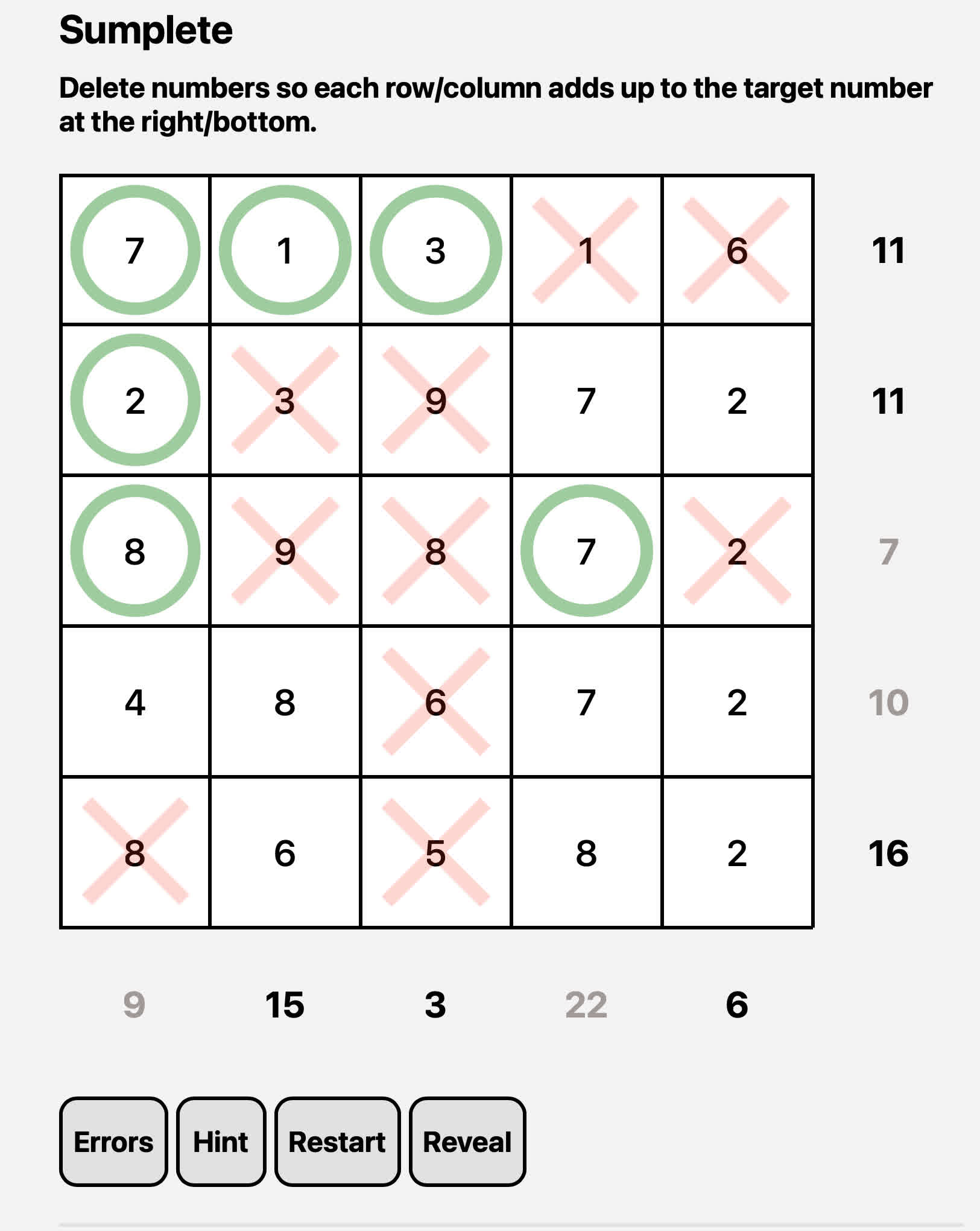In context: Chatbots stemming from OpenAI's ChatGPT are the current rage. Despite the ongoing debate over copyrights and other issues with the still somewhat nescient technology, every big tech company seems to want one. While its flaws are many and varied, some people are using it in constructive and potentially marketable ways.

Update (March 10): ChatGPT has again shown its ignorance. Despite its claim that Sumplete is a unique and original game, the internet didn't take long to prove it lied. At least two games — Summer and Rullo — are available on mobile app stores and have the same rules. It turns out that even those are just mobile versions of the pulp puzzle game Cross Sums invented in the 1950s.
Once again, it's another example of ChatGPT (or its variants) making up stuff and selling it as original with "perfect confidence." This behavior earned the chatbot the moniker the "Slickest Con Artist of All Time" from Ted Gioia.
"ChatGPT [is] the hottest thing in tech right now," Gioia said last month. "It's even hotter than its predecessor Sam Bankman-Fried, who was doing something similar 12 months ago. ChatGPT is just better than SamFTX in every way. It can't even be extradited—because it's just a bot."
Gioia points out that the chatty AI tends to plagiarize or fabricate "facts." Then when confronted about it, it makes up another lie to cover the previous, all with the complete confidence of a skilled con artist. Of course, the AI is not intentionally lying, but the effect is essentially the same for the person using it.
Daniel Tait is not the first to be fooled by the chatbot, and he likely won't be the last.
The original story follows below:
Despite examples of its sketchy and incorrect theories on math, ChatGPT recently created its first math game. For the most part, the AI made up everything about the number puzzle, including its name and programming, with little human assistance.
It started when programmer Daniel Tait asked ChatGPT to suggest a few Sudoku-like games he could play — something it readily accomplished with five "familiar" recommendations. However, Tait wanted something unique, so he modified his query to ask for a game that didn't exist. After several attempts, ChatGPT invented "Sum Delete."
The rules are relatively simple. The player has to cross out numbers on a grid so that the sum of each row and column add up to the totals listed to the right and bottom of the layout. The game has several difficulty levels ranging from a super easy-to-solve 3x3 grid to a crazy hard 9x9, which introduces negative and two-digit numbers to the matrix.

Thinking the game's original name, Sum Delete wasn't catchy enough, Tait prompted the AI to think of a better one. After a couple of tries, it suggested "Sumplete," a portmanteau of the words "sum" and "complete." He then asked ChatGPT to program a working version of the game. In about 30 seconds, the AI had coded a web-based version of Sumplete in HTML and JavaScript, complete with CSS.
Tait spent a few more hours reiterating the game with the AI, tweaking it, and adding more features. After developing a satisfactory internet-ready game, Tait purchased the domain "sumplete.com" and built a website hosting the machine-generated game so others could play. Players can choose from the various difficulties or try the "Daily Sumplete" — a 5x5 puzzle that, if solved, unlocks the Daily Master challenge.
As far as Tait knows, Sumplete is a unique creation, but he's not 100 percent sure. He encourages anyone who might have played something similar to contact him. At the very least, the game exemplifies how people can use AI to create a marketable product with minimal effort. Whether this is a good or bad thing is another question still facing heated debate.
Image credit: Mikemacmarketing